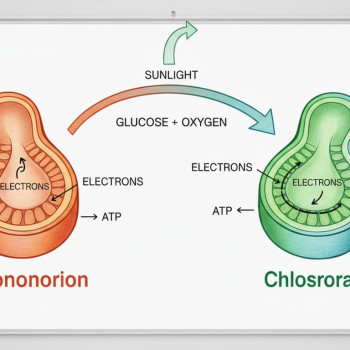Why Parents Matter: Small Daily Habits That Make Big AP Differences
When your child is preparing for AP exams, the textbooks, practice tests, and review sessions are obvious pieces of the puzzle. What sometimes gets overlooked is this: the basic, day-to-day habits — sleep, nutrition, and movement — shape how well the studying actually sticks. As a parent, you aren’t just a logistics manager for schedules and snacks. You’re a designer of an environment where learning, concentration, and stress resilience can flourish.
Think of habits as academic infrastructure
Infrastructure isn’t glamorous, but bridges fail when foundations are weak. Sleep, food, and movement are the foundation for attention, memory consolidation, mood, and energy. Tweak those, and you often get outsized improvements in study effectiveness without adding an extra hour of review to a packed day.

Sleep: The Nonnegotiable Study Superpower
Sleep is not downtime for the brain. It’s the time when short-term memories become long-term knowledge, when emotional memories are processed, and when the mind clears out the day’s cognitive clutter. Teens need more sleep than adults — typically 8 to 10 hours — and yet during AP season many get far less. As a parent you can make a practical difference.
Why 8–10 hours matters for AP prep
- Memory consolidation: Deep and REM sleep stages help cement what was learned during the day.
- Executive function: Sleep affects planning, problem-solving, and attention — all crucial for complex AP prompts.
- Mood and stress regulation: Well-rested students handle frustration on hard practice questions better and are less prone to anxiety before exams.
How parents can support better sleep
- Set a realistic, consistent lights-out target that allows for 8–10 hours before morning commitments. Schedule backwards from wake time to find the right bedtime.
- Encourage a wind-down routine: 30–60 minutes of low-stimulus activity before bed (reading, stretching, light journaling).
- Manage devices thoughtfully: Avoid screens with blue light at least 45–60 minutes before bed, and consider charging phones outside the bedroom or on do-not-disturb schedules.
- Model healthy sleep: Kids follow examples. Demonstrate prioritizing sleep through your own routines.
- Allow for strategic naps: Short (20–30 minute) naps can refresh attention without disrupting nighttime sleep if timed earlier in the day.
Nutrition: Feed Focus, Not Just Hunger
What a student eats before and during study sessions changes how their brain performs. Think of food as study fuel — not a quick energy spike but the steady, usable energy that supports sustained concentration and learning.
Building a brain-friendly daily eating pattern
Encourage meals that combine complex carbohydrates, lean protein, healthy fats, and fiber. Snacks matter. Sugary foods give temporary wakefulness followed by crashes, which can sabotage late-afternoon study blocks.
- Breakfast: Oats with yogurt and fruit, whole-grain toast with nut butter and banana, or eggs and vegetables — choices that combine protein and slow-release carbs.
- Lunch: A balanced plate (lean protein, whole grains, veggies) to prevent post-lunch slump.
- Snacks: Nuts, Greek yogurt, hummus with veggies, or apple slices with cheese for steady energy.
- Hydration: Even mild dehydration reduces concentration. Keep a water bottle accessible during study sessions.
Practical parent moves
- Plan simple, grab-and-go options for heavy study days so your teen doesn’t default to vending machine food.
- Cook larger batches (soups, grain bowls) and freeze portions for quick reheat during intense review weeks.
- Make healthy snacks visible and easy to grab — studies show availability strongly influences choices.
Movement: Short Bursts, Big Gains
Movement is a potent cognitive enhancer. Even short aerobic activity increases blood flow to the brain, sharpens attention, and reduces stress hormones. You don’t need marathon training — math scores can climb after brisk walks or 10–20 minutes of bodyweight exercise.
How to weave movement into an AP study routine
- Pomodoro + movement: After a 25–50 minute study block, encourage 5–10 minutes of movement — stretching, jumping jacks, or a quick walk.
- Morning activation: A light 10–20 minute morning routine primes focus for the day.
- Breaks that reset: Use longer study breaks for moderate exercise — a run, bike ride, or yoga session helps consolidate learning when returning to review.
Make movement social and fun
Invite participation. Family walks after dinner, short home workouts together, or encouraging your teen to join a study group that meets in a park — these make movement feel less like a chore and more like a routine that supports study goals.
Practical Routines: Combining Sleep, Nutrition, and Movement
Below is a sample weekly routine that integrates sleep, nutrition, and movement while balancing AP study blocks. Use it as a template and adapt to your teen’s school schedule and energy rhythms.
| Time | Activity | Why It Helps |
|---|---|---|
| 6:45–7:15 AM | Short morning movement + balanced breakfast | Increases alertness; breakfast fuels morning classes or review. |
| 8:00–3:00 PM | School — hydrate and healthy lunch | Sustained energy; avoids afternoon crash. |
| 4:00–6:00 PM | Focused AP study block (with 5–10 min movement breaks) | Maximizes retention; movement resets attention. |
| 6:00–7:00 PM | Family dinner | Recovery, social support, balanced nutrients. |
| 7:30–9:00 PM | Light review or practice (no screens before bed) | Consolidation without overstimulation. |
| 9:30–10:00 PM | Wind-down routine — reading, stretching | Prepares brain for restorative sleep. |
Adjusting for individual needs
Your teen might be a morning lark or a night owl — the key is consistent sleep duration and timing as much as possible, and aligning study blocks with natural peak focus periods. If AP practice sessions go better in the evening, shift the routine earlier the following morning to protect sleep.

Common Parent Questions and Concerns
“My teen says they ‘study better late at night’ — should I stop them?”
It’s a balance. If late-night study is occasional and your teen still gets 8+ hours of sleep, it might be workable. The risk is chronic sleep loss — late-night sessions that cut into necessary sleep will reduce overall learning efficiency. Encourage experimentation with focused morning study weeks to compare outcomes objectively (practice tests taken when well-rested will show the truth).
“How do I handle caffeine?”
Moderation is key. Caffeine can be helpful for short-term alertness but can disrupt sleep for many teens if consumed late in the day. Aim to limit caffeine to early afternoon and avoid it within 6–8 hours of bedtime.
“What if my teen is stressed and can’t sleep?”
Addressing sleep anxiety is important. Practices that help include a predictable wind-down routine, relaxation exercises (deep breathing or progressive muscle relaxation), and reducing evening screen time. If sleep problems persist, consider consulting a pediatrician or sleep specialist; severe sleep disruption can undermine both health and AP performance.
Measuring Progress Without Becoming a Coach
Parents want to help, not micromanage. Set up low-pressure ways to track whether changes in sleep, nutrition, and movement are helping.
- Short weekly check-ins: Ask about energy, mood, focus, and what felt different in study sessions.
- Use practice test performance as an objective measure: Compare scores from well-rested weeks vs. sleep-deprived weeks.
- Celebrate habits, not perfection: Praise consistency (e.g., three nights of solid sleep) rather than perfection on day one.
How Tutoring and Personalized Support Fit In
Good content and healthy habits amplify each other. When a student has steady sleep and nutrition, tutoring sessions are more productive — fewer skipped sessions, better attention, and faster absorption of material. Personalized tutoring, like Sparkl’s tailored 1-on-1 guidance, can work seamlessly with habit planning: tutors can coordinate study times that respect sleep schedules, design targeted review plans that fit energy peaks, and use AI-driven insights to focus practice on weak spots so study time is more efficient.
What to expect from habit-aware tutoring
- Study plans that consider daily rhythms and avoid overloading on low-energy times.
- One-on-one sessions that adapt pace based on the student’s current focus level.
- Regular progress check-ins that combine content mastery with wellbeing indicators (sleep and stress).
Real-World Examples: What Worked for Other Families
Here are two brief, anonymized examples that show how small habit changes yielded big results.
- Case A — The Night Owl Turned Morning Performer: A junior who habitually studied until 1 a.m. switched to a 10:30 p.m. lights-out and a 6:30 a.m. focused review routine. Within three weeks, practice exam consistency improved, particularly on essay tasks that require clear thinking.
- Case B — The Snack Saboteur: A student who relied on sugary snacks and energy drinks replaced them with balanced meals and nuts + fruit for study sessions. Afternoon focus improved, and study sessions were longer and less interrupted by crashes.
Practical Checklist for Parents Tonight
Start with small wins. Here’s a short checklist you can use this week.
- Set a consistent lights-out time that allows 8–10 hours of sleep.
- Pack or plan at least three healthy, balanced snacks/meals for study days.
- Introduce 5–10 minute movement breaks during long study blocks.
- Designate a phone-charging station outside the bedroom overnight.
- Try one week of morning-focused study and track practice test scores.
- Consider a short conversation with a tutor (e.g., Sparkl’s team) to create a study plan that matches energy patterns.
Final Thoughts: Small Habits, Lasting Benefits
Preparing for AP exams is as much about sustainable systems as it is about content knowledge. The combination of consistent sleep, balanced nutrition, and purposeful movement makes every hour of study count more. As a parent, your role is to create the environment where those habits can grow: set gentle structure, make healthy choices convenient, and collaborate — don’t dictate. When you do, your teen’s late-night cram sessions become less necessary, their study time becomes more productive, and their confidence grows.
Remember: the goal isn’t perfect routines; it’s resilient routines. Nurture the foundation, and the rest — comprehension, recall, and calm under pressure — will follow.
If you’d like help turning these habit ideas into a practical study plan tailored to your child’s schedule and AP subjects, consider a short consultation with a personalized tutoring service like Sparkl’s. They can combine expert tutoring, tailored study plans, and data-driven insights to make the most of each study hour — while keeping sleep, nutrition, and movement front and center.
Quick Reference: Habit Impact Summary
| Habit | Primary Benefit | Simple Parent Action |
|---|---|---|
| Consistent Sleep | Memory consolidation, attention, mood | Set lights-out target; model wind-down routine |
| Balanced Nutrition | Sustained energy, fewer crashes | Prepare grab-and-go balanced snacks and meals |
| Regular Movement | Sharper focus, reduced stress | Schedule short activity breaks during study |
You’re not alone in this. Small, consistent choices — guided by patience and compassion — equip your child with the physical and mental stamina to approach AP exams with clarity and confidence. Breathe, adapt, and celebrate progress along the way.


















No Comments
Leave a comment Cancel